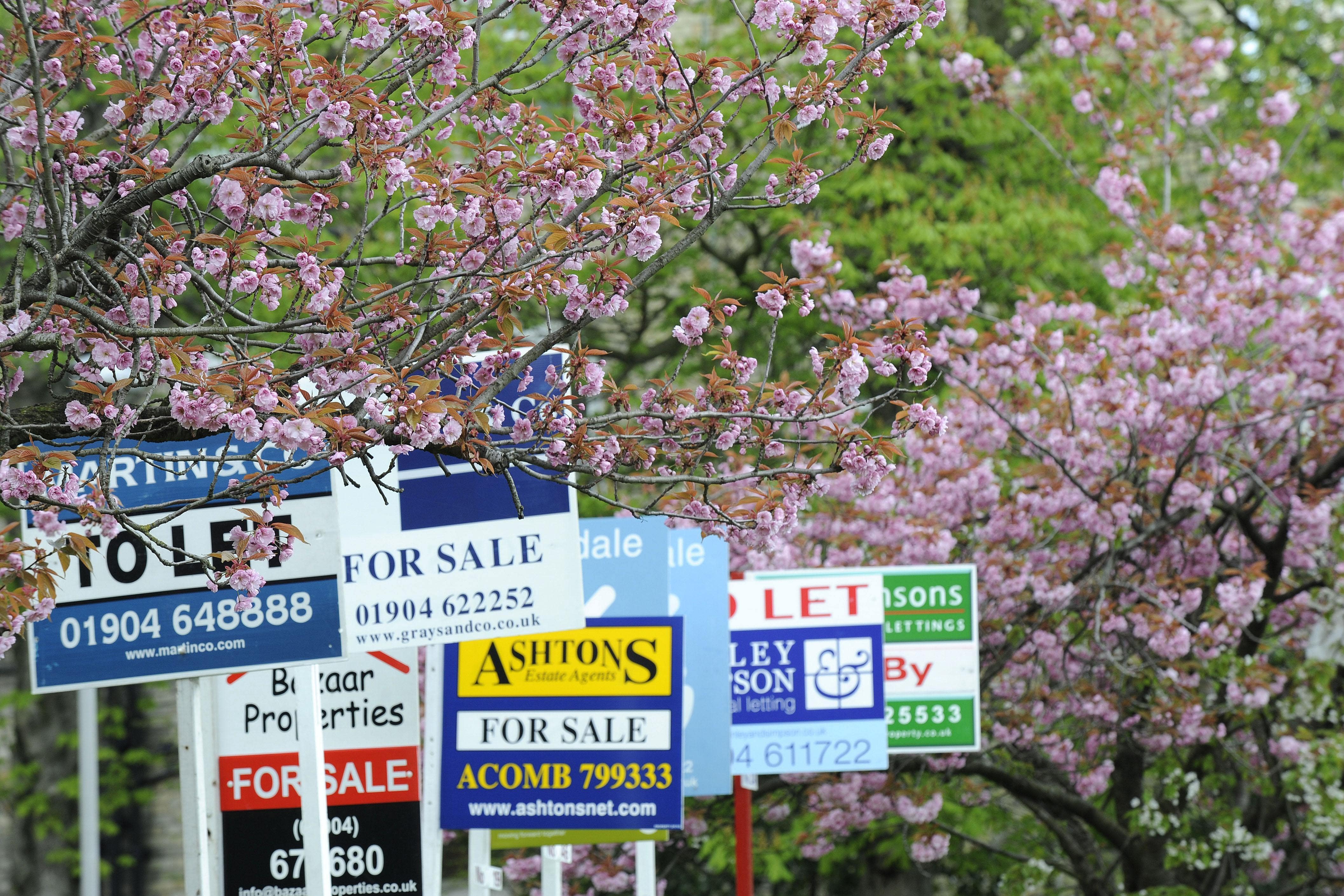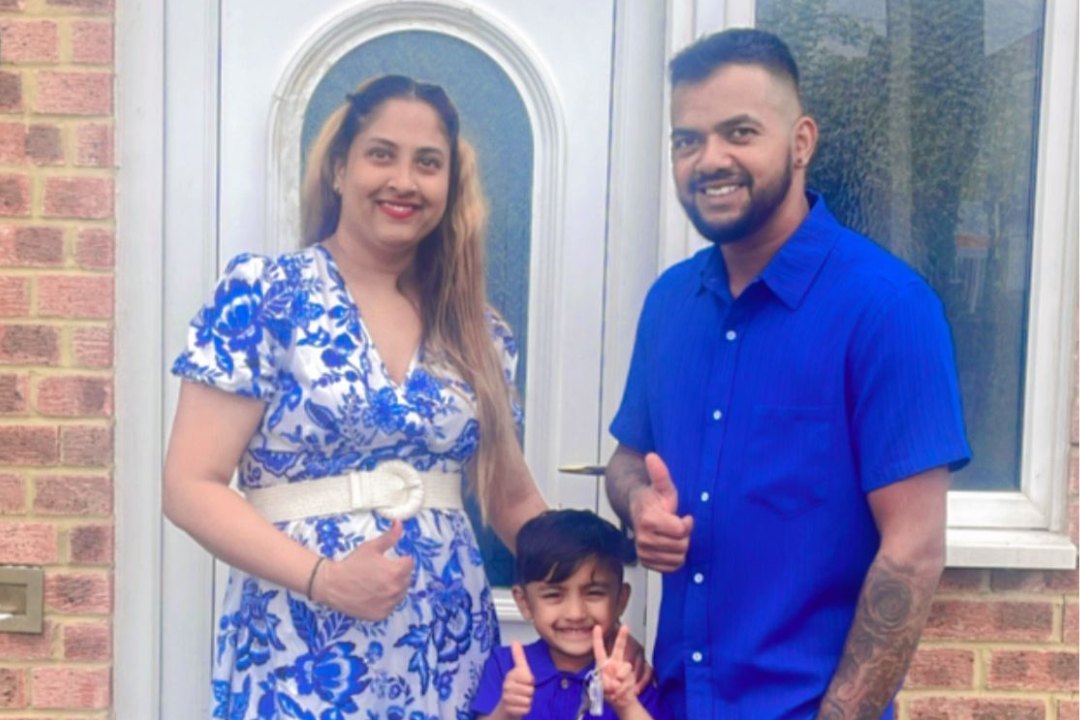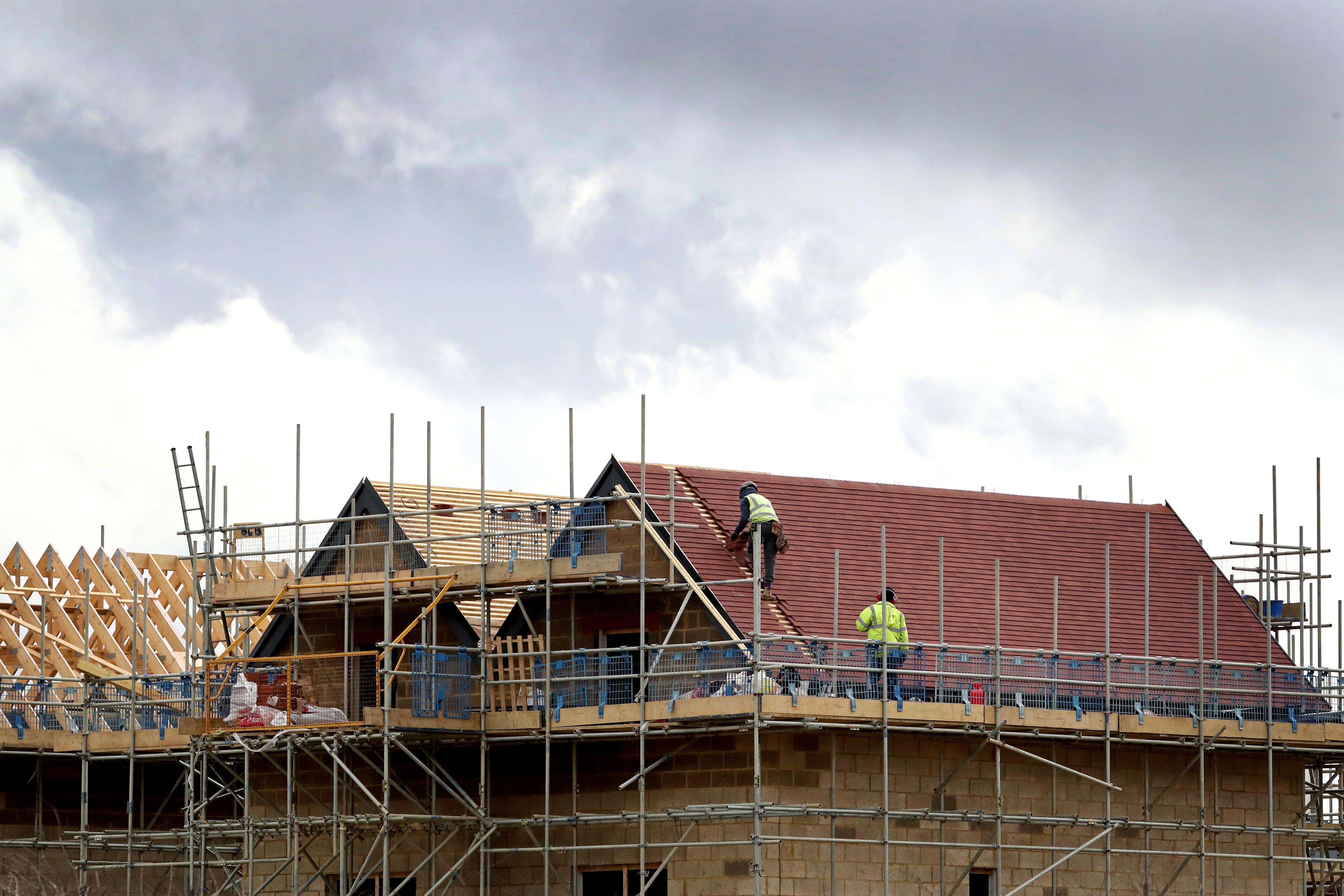Housing costs have spiralled for everyone in the UK over the last few years. Whether you own a home or rent, bills have gone up, with mortgages and rental prices both reaching record highs. For many young people, the promise of home ownership has become a dream, as house prices approach nine times higher than the average salary.
With it being harder than ever to get on the property ladder, some aspiring homeowners are looking to non-traditional routes to achieve their housing goals. Research from Lloyds Bank shows just over half of young people would be willing to buy with a friend or sibling – a trend that’s been picking up in recent years.
Jack Robinson, 27, and Gemma Griffin, 28, are two friends living in London. After renting together for seven years, they decided to get a shared mortgage, splitting the cost of the deposit.
“Renting was getting far too expensive for us,” said Ms Griffin. “It just felt like every time we had a promotion at work or there were inflationary salary increases, it was just being offset by the amount that rent was going up.”
The pair say their rent went up around 40 per cent over the last five years they were renting. This is not a strange case for London, where rents have risen nearly 50 per cent since 2021. The average rent in the capital in April 2024 was £2,121.
“We looked at the idea of getting a flat together, and it was actually cheaper for us to have a mortgage, and have that money going into an asset as well,” Ms Griffin added.

The pair now live in Woolwich, a well-connected neighbourhood in south London. Their two-bed, two-bathroom new-build, by developer Fairview, cost £440,000 and had a 10 per cent deposit of £44,000. Mr Robinson and Ms Griffin split this equally at £22,000.
“We decided rather than waiting around for us to individually be able to buy or wait until we could do it with a partner, we figured it’s just better to get off the rental market right now and do it together,” Ms Griffin said.
Joe Almeida, 34, recently had a similar idea when he bought a house in Feltham, Middlesex. The head chef’s purchasing experience was a true family affair, with his wife, older brother, and two siblings-in-law all helping out.
To secure a deposit of £34,000, Mr Almeida put in £15,000 and his older brother added the additional £19,000. His two siblings-in-law were essential in lowering the overall amount of the mortgage, acting as joint borrowers to make it easier for Mr Almeida to qualify.
He said: “My brother-in-law and sister-in-law helped me as joint borrowers to buy a mortgage. And my elder brother, he helped me with the minimum deposit.
“I was actually not going to go for the joint borrowers, but they said ‘go for it,’ because I was not getting the mortgage I needed for a three-bed house. So that’s why I decided to go with them.
“Without them, I could have only got enough to afford a £200,000 [property], not enough for a three-bed house.”

Mr Almeida now lives with his wife, their four-year-old son and his two siblings-in-law. He highly recommends the way in which he bought his house, advising people: “If they have a family who are helpful, they should go for a joint borrower mortgage.”
He was able to secure his mortgage with the help of broker Tembo, which specialises in helping first-time buyers and assisting with affordability. The mortgage broker said a ‘joint borrower sole proprietor’ scheme like Joe’s is one of the most effective ways to boost affordability. The scheme is getting more popular with around 20 lenders offering it, compared to just 10 four years ago.
For some, the rental market can appear so bleak that they decide to bypass it altogether if they can. This was the case for Dylan and Marcus Hall, 22 and 27, two brothers from Dunfermline, Scotland. The pair were keen to move away from home after living with their parents during the Covid pandemic.
“We decided that it would be best to move out together as we were both on the same page about what we wanted in a property,” said Dylan, who works as an HR manager.
“It made sense to buy together as we had lived together before, so we knew each other’s habits and situation beforehand.”
Neither of the pair had rented before and decided they would rather try and own a house. Dylan explained: “We were keen to avoid renting, and living together meant that both of us could get a foot on the property ladder, when separately we both probably couldn’t have afforded to buy a home.”

Their fears are not unfounded, with house prices in the UK also reaching ever-higher records in recent months. The UK’s average house price now sits at a relatively steady £285,000. Sudden price increases beginning in 2021 mean this is up from £189,500 at the start of that year – an increase of 50 per cent in just over three years.
Many aspiring homeowners might feel the idea of purchasing with a friend or sibling is a little close to home. Lloyds Bank said among young people who said they were not keen on the idea, the most common reason was because they wouldn’t want to complicate their relationship.
This was followed by many respondents saying they would be unsure of how the arrangement would affect potential future plans to move in with a partner.
For Mr Robinson and Ms Griffin, neither of these was a real concern, saying they approached the plan with “transparent” conversations. Tech consultant Ms Griffin explained: “There needs to be open lines of communication and you’ll have difficult conversations.
“Whether that’s about what you want out of a property or area or seeing each other’s finances in a degree of detail that you probably haven’t before.
“It’s important to be open and honest. Without this, there will be surprises that can lead to even more awkward conversations, or even losing your dream home.”
Brothers Dylan and Marcus also acknowledged the non-traditional route to home ownership could come with challenges, so they advise anyone considering a similar arrangement to discuss the possible issues.
“Something we’d both thought about was about how we would deal with future circumstances, like if we decided to move out with a partner,” added Dylan.
“We were very open in discussing issues we had because we already knew each other really well, and we made sure we had a plan in place if one of us decided they wanted to move out, it eased any worries we had.”

But for head chef Mr Almeida, there were no reservations about living with his siblings-in-law: “It’s better to live with family. It’s nice. It feels like home.”
Amanda Bryden, mortgage director at Lloyds Bank said: “While many of us may picture our first property purchase as a home purchase with a partner, this new data shows that more people are open to buying with a friend or sibling than many would expect.
“Buying with a friend or sibling can be appealing because you have probably known this person for a long time, but this new data also shows that people don’t always feel confident broaching financial subjects.
“Just as you should when purchasing with any other person, we would always suggest that you speak with a qualified solicitor about the implications of a shared property purchase, to ease your future progression if you do choose to sell further down the road.”





